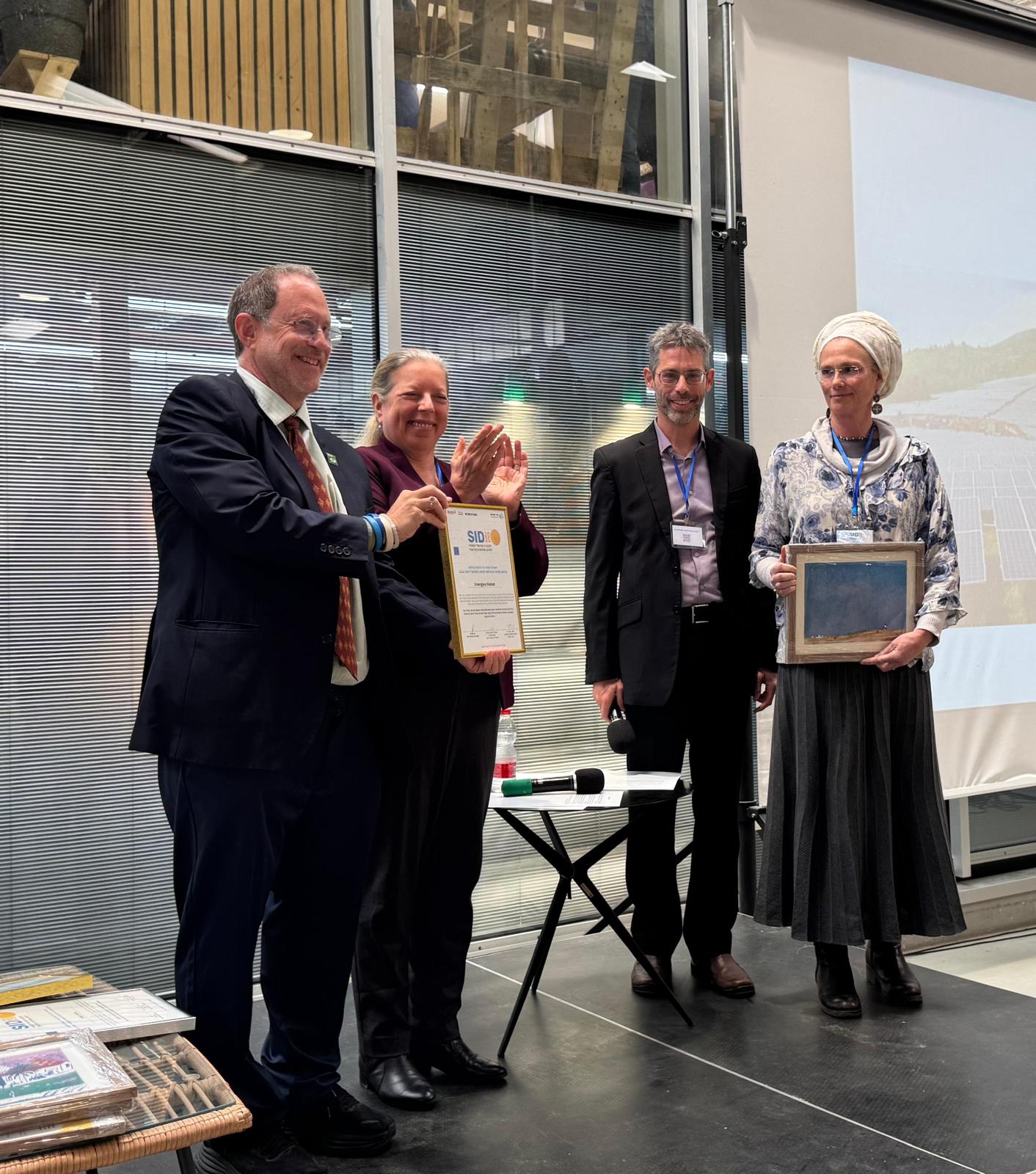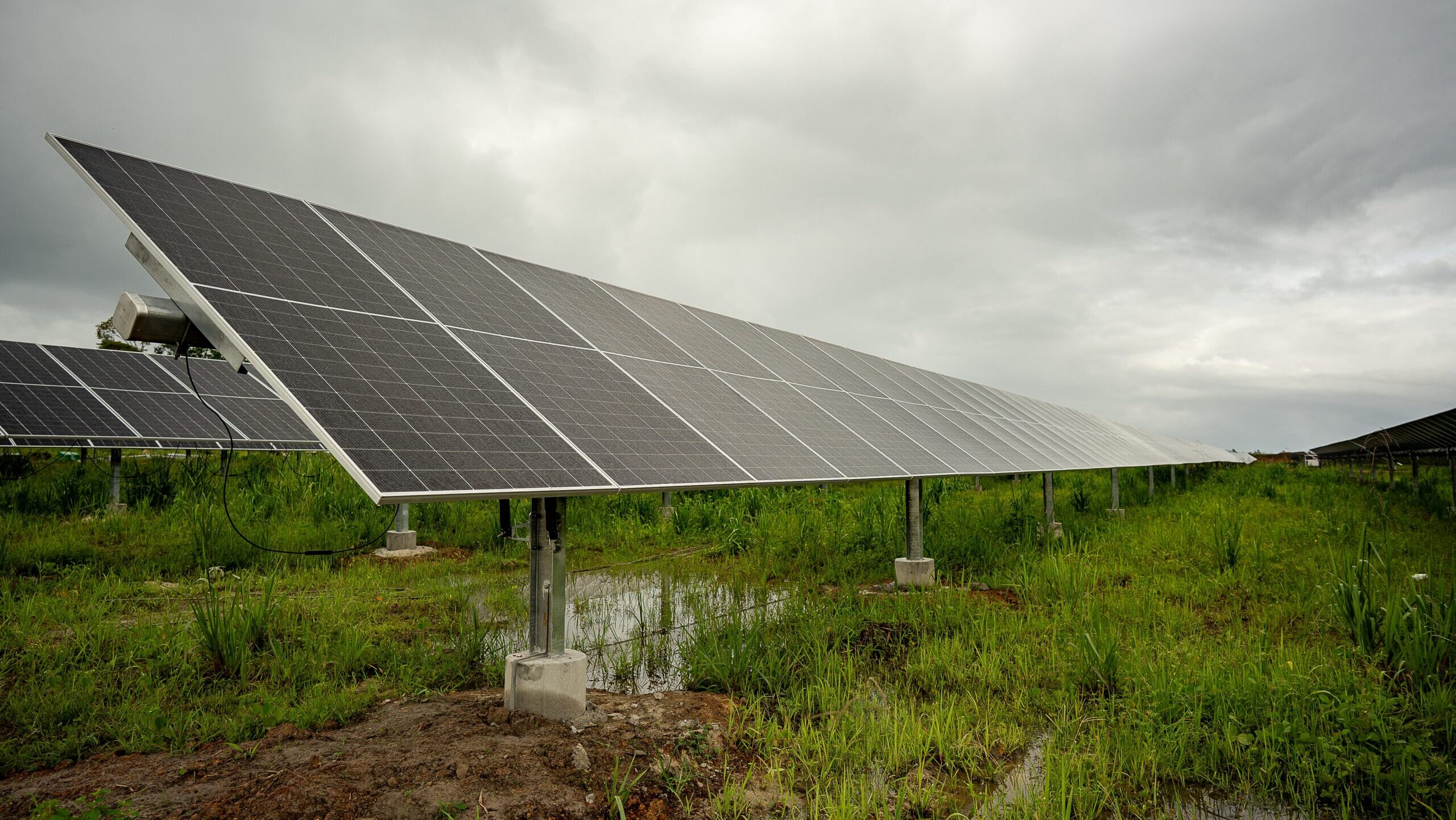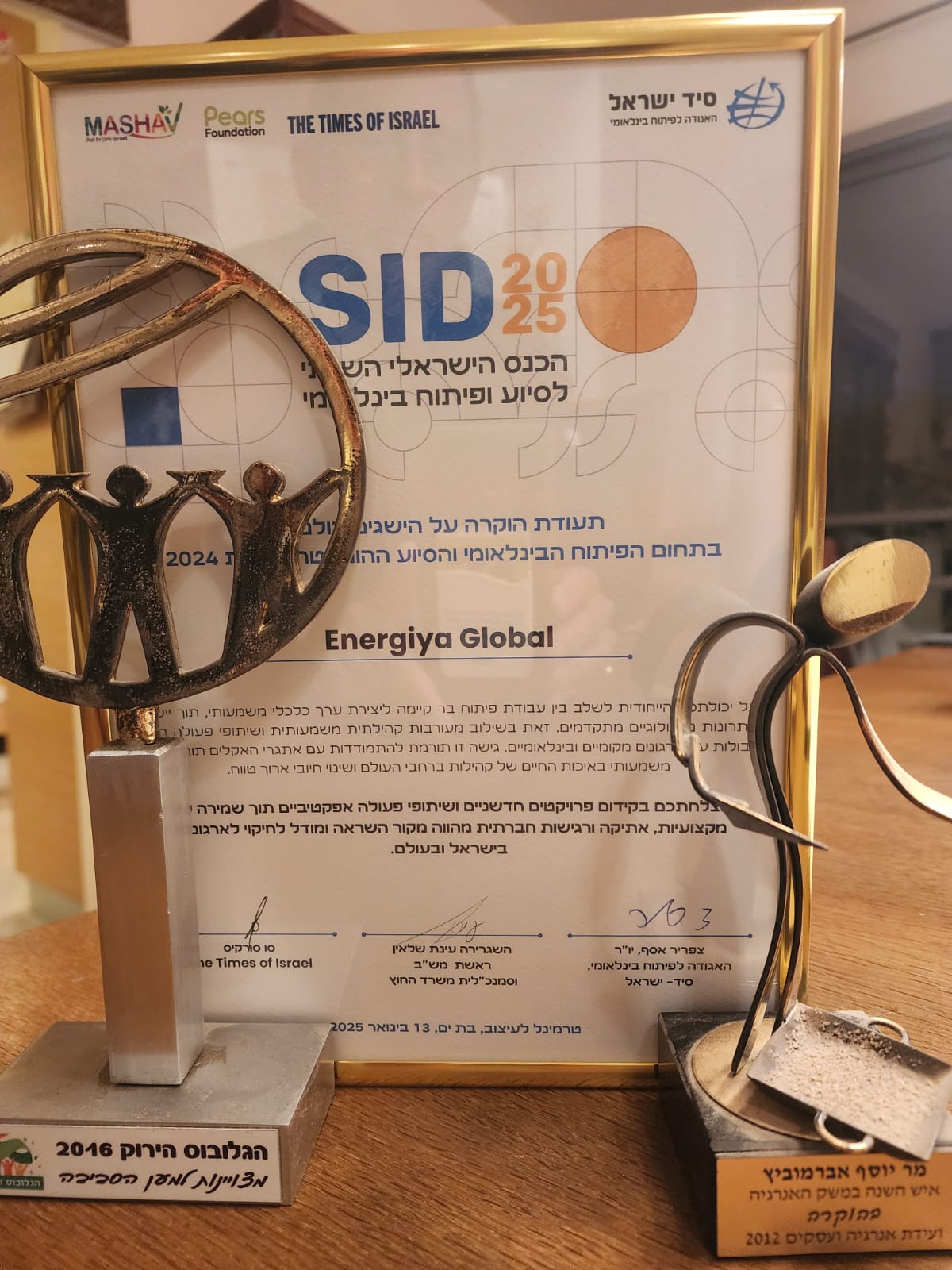Lighting Up Africa: How An American Immigrant to Israel Is Driving Climate Justice With Solar Energy
Abramowitz has led renewable energy projects in a dozen African countries, including a utility-scale solar field that promotes economic and social development while improving perceptions of Israel
An American immigrant to Israel has been honored with a prestigious award for advancing climate justice in Africa.
Meet Yosef Abramowitz, an American-Israeli educator, human rights activist, and entrepreneur. He is widely recognized as one of Israel’s most prominent pioneers in the solar energy industry.
Twelve African countries nominated Abramowitz for the Nobel Peace Prize. His accolades include being named one of CNN’s six global “Green Pioneers,” one of the “most inspiring solar CEOs” by PV Tech, and Person of the Year by the Israel National Business and Energy Conference.
On Monday, Abramowitz received the top prize from the Society for International Development-Israel (SID-Israel). The organization connects civil society, government institutions, academia, private companies, and international development and humanitarian aid experts. The award celebrates his leadership and work in advancing solar energy in Israel and East Africa.
Abramowitz has spearheaded solar initiatives worth nearly $1 billion in green energy projects. He co-founded the Arava Power Company, Israel’s leading solar developer, and Energiya Global Capital, the company recognized by SID for its impact.
Energiya Global Capital focuses on climate justice and human rights by providing affordable green energy to underserved communities.
Yossi Abramowitz [is] an entrepreneur, a dreamer, and a doer who became a beacon of vision, knowledge, and implementation in the Israeli international development community. Mr. Abramowitz is actively creating change, bringing light and energy to those in need.
“Yossi Abramowitz [is] an entrepreneur, a dreamer, and a doer who became a beacon of vision, knowledge, and implementation in the Israeli international development community,” said Ambassador Eynat Shlein, head of Mashav, Israel’s Agency for International Development. “Mr. Abramowitz is actively creating change, bringing light and energy to those in need.”
Shlein emphasized to The Media Line that Abramowitz and his companies showcase Israeli innovation and technology in developing countries. By doing so, they highlight “the other side of Israel – an Israel that is committed to assisting other nations, offering innovative solutions to the challenges of climate change and other major issues faced by developing countries.”
The award was presented to Abramowitz and Energiya Global, the Israeli service arm of international developer Gigawatt Global, at SID-Israel’s Annual Conference in Bat Yam.
“Energiya Global’s work exemplifies Israeli innovation in international development – combining innovative business models with advanced technologies and a commitment to climate justice,” said Ayelet Levin Karp, Chief Executive Officer of SID-Israel, during the ceremony. “Their success demonstrates how Israeli expertise can create a substantial impact in addressing global challenges, setting an inspiring model for the Israeli international development community.”
Give the gift of hope
We practice what we preach:
accurate, fearless journalism. But we can't do it alone.
- On the ground in Gaza, Syria, Israel, Egypt, Pakistan, and more
- Our program trained more than 100 journalists
- Calling out fake news and reporting real facts
- On the ground in Gaza, Syria, Israel, Egypt, Pakistan, and more
- Our program trained more than 100 journalists
- Calling out fake news and reporting real facts
Join us.
Support The Media Line. Save democracy.
The conference attracted over 400 attendees, including leaders in aid, development, and policy and representatives from civil society, the business sector, philanthropic foundations, and international organizations. It served as a platform for discussing collaborative strategies to improve humanitarian outcomes. Topics ranged from the impact of conflict on development work to the evolving partnerships between Israeli organizations and global aid groups in the context of war.

(L-R) Yosef Abramowitz, CEO Energyia Global, Ambassador Eynat Shlein, head, Mashav, Israel International Development Agency, Israel Assaf Tzafrir, Board Chair, SID-Israel, Dr. Hanna Klein, VP, Energyia Global. (Hallel Abramowitz-Silverman)
Abramowitz has spearheaded renewable energy projects across a dozen African countries, including South Sudan, Nigeria, Liberia, Mozambique, Uganda, Kenya, Ethiopia, Zambia, and the Comoros. One of his landmark achievements is the development of Sub-Saharan Africa’s first utility-scale solar field in Rwanda. This project at the Agahozo-Shalom Youth Village provides 6% of Rwanda’s national power supply and supports a community for vulnerable youth.
In Burundi, Abramowitz recently inaugurated the region’s first large-scale solar field, which generates 15% of the country’s electricity and supplies 100% of the capital city’s daytime power needs.
Israel has the potential to be a superpower of goodness in the developing world, especially in Africa. Energiya Global and our partners—donors and impact investors—are proud to pioneer utility-scale solar field in a blended-finance model to drive major economic and social development in the least developed countries.
“Israel has the potential to be a superpower of goodness in the developing world, especially in Africa,” Abramowitz said. “Energiya Global and our partners—donors and impact investors—are proud to pioneer utility-scale solar field in a blended-finance model to drive major economic and social development in the least developed countries.”
By “blended finance model,” Abramowitz refers to combining grant funding with private investment to maximize impact. Through Gigawatt Global, its NGO offshoot Gigawatt Impact, and other partnerships, Abramowitz’s team secures grants to unlock project financing at a ratio of 1:25.
One example is a 14 MW solar field in Juba, South Sudan, which is in advanced development stages. The project, which will include 8 MW hours of battery storage, is expected to attract $30 million in investment with the help of grant funding. In Western Uganda, Energiya Global is collaborating with the Abundance Initiative on solar projects that integrate agro-processing. This initiative aims to quadruple incomes for women farmers living in poverty and is supported by the United Nations Industrial Development Organization and the NGO Bringing Hope to the Families.
It is really staggering, the level of poverty throughout Africa. I think people in Tel Aviv or the United States don’t really understand what that means. However, in Africa, more than 600 million people do not have access to electricity, which means they also do not have refrigeration, they don’t have access to quality education, or sustainable jobs. So, if you can solve the energy problem, you can catalyze significant economic and social development.
“It is really staggering, the level of poverty throughout Africa,” Abramowitz told The Media Line. “I think people in Tel Aviv or the United States don’t really understand what that means. However, in Africa, more than 600 million people do not have access to electricity, which means they also do not have refrigeration, they don’t have access to quality education, or sustainable jobs. So, if you can solve the energy problem, you can catalyze significant economic and social development.”
This is why projects like the one in Uganda are so critical. Abramowitz explained that their initiative is expected to quadruple the incomes of impoverished women farmers by providing access to green energy. Currently, half of what these women grow is lost due to the lack of refrigeration. Solar energy will change this.
“Once you quadruple poor farmer income, you have lifted people out of poverty,” Abramowitz said.
Once you quadruple poor farmer income, you have lifted people out of poverty
In addition, Gigawatt Impact, the new nonprofit associated with Abramowitz’s portfolio, is sharing Israeli agrovoltaic expertise with Historically Black Colleges and Universities (HBCUs) in the American South. This collaboration is being carried out with the Thurgood Marshall College Fund.
“The US is the biggest consumer market in the world, and it’s the biggest food consumer market in the world,” Weldon Turner, a co-founder of Gigawatt Impact, told The Media Line. “This is the real opening to provide Israeli [green] technology to move into the United States.”
Abramowitz’s work isn’t limited to international projects. He pioneered Israel’s solar industry, making the Arava region almost entirely reliant on solar power during daylight hours. He is also committed to supporting the Bedouin community in the Negev. Through a separate NGO, he works to bring solar energy to Bedouin schools, replacing unreliable generators.
While Abramowitz acknowledged that most of Israel is focused on domestic challenges in the aftermath of the October 7 attack and the ongoing multi-front war, he emphasized that the country faces scrutiny and hostility on the global stage. He hopes his work can help shift perceptions.
There is a critical mass of Israelis who are able to open our hearts beyond our own borders and say that despite our hardships, we have something to offer the world.
“There is a critical mass of Israelis who are able to open our hearts beyond our own borders and say that despite our hardships, we have something to offer the world,” he told The Media Line.
Abramowitz believes his efforts in international development have helped secure Israel a seat at the table within the African Union and have even influenced voting by Arab countries at the United Nations and other international forums.
“The more friends we have in these pretty dark times, the better,” he said.




